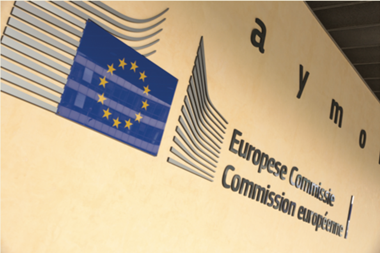Member states are meeting today to discuss their latest thinking on the EU’s plans to simplify its sustainability disclosure and due diligence laws.
The Council of the European Union will consider a proposal by its current presidency, Poland, that the rules should be further cut back.
In a preparatory note circulating this week, the presidency suggests the Corporate Sustainability Due Diligence Directive (CS3D) should be reduced in ambition, and what remains should only apply to companies with more than 5,000 employees and €1.5bn in turnover.
The requirement for corporate climate transition plans should be delayed until 2030, Poland argues.
The proposal builds on moves by European Parliament’s chief negotiator, Jörgen Warborn, to significantly weaken CS3D and the Corporate Sustainability Reporting Directive (CSRD), reported by IPE last week.
“But what’s being discussed by the Council today is far more aggressive than what Warborn presented last week, or what the European Commission has proposed,” says Julia Otten, a senior policy officer at NGO Frank Bold.
“It won’t make information flows simpler and more streamlined, which is what they said the Omnibus was about,” she continued.
“It would just deregulate companies.”
On CSRD, the Commission wants to carve out companies with less than 1,000 employees and €50m in turnover. The Council is now considering retaining the 1,000 threshold, but increasing the financial limit to €450m. Parliament wants to change both: €450m net turnover, plus 3,000 employees.
There are no official figures for how many firms would stay in scope of CS3D and CSRD if the various proposals are successful, but the latest estimates from civil society – based on official Commission figures – put the number at less than 1,000 if Council or Parliament get their way.
“Investors never had much in the way of obligations under CS3D,” notes Otten, adding that, under the current plans, “the more critical issue for them will be the lack of data coming out of CSRD”.
The European Central Bank agrees. It said in a formal opinion last month that all “significant” credit institutions should be covered by CSRD, regardless of its size, “due to the importance of ensuring sufficient ESG data from the banking sector”.

It urged EU legislators to make sure they didn’t increase the Directive’s thresholds to 1,000 employees, but kept it to less than 500.
PensionsEurope and the European Fund and Asset Management Association (EFAMA) have both expressed similar views in recent weeks, warning that investors will be forced to buy-in expensive and unreliable third-party sustainability data – often sold by US ratings providers – if the EU goes ahead with its plan to remove mandatory self-reporting requirements for thousands of companies.
“We’ll see a lot of data lost already, without a further increase to the threshold,” says Ilia Bekou, a regulatory policy advisor specialising in sustainability for EFAMA.
She believes it would be more sensible for EU lawmakers to focus their attention on improving the European Sustainability Reporting Standards (ESRS), which dictate the level of data that needs to be disclosed under CSRD, rather than the number of entities it applies to.

“We’ve been going through the ESRS line by line, literally, to find the reporting obligations that are primarily useful for investment purposes and necessary to enable our members to comply with other regulations,” explains Bekou.
The result: a checklist of 150 meaningful data points and 26 general policies that issuers should disclose to the market.
EFAMA is now working with other trade associations in the finance sector to develop a harmonised set of requests that they can communicate to the European Financial Reporting Advisory Group (EFRAG) – the body currently in charge of helping the Commission simplify the ESRS.
While not all financial institutions will have the same needs when it comes to data (banks are required to provide certain information to supervisors to comply with Europe’s prudential rules, for example, whereas asset managers aren’t), there is a sense that a unified voice would help ensure the industry is better represented in discussions with rule makers.
EFAMA is expected to present its thinking on the future of ESRS to EFRAG in the coming weeks. In the meantime, member states will send their ministers of foreign affairs to the EU’s monthly General Affairs Council next week, where it’s possible they will decide on the Council’s official negotiating position for the Omnibus.
The latest digital edition of IPE’s magazine is now available

Topics
- Corporate Sustainability Due Diligence Directive (CSDDD)
- Corporate Sustainability Reporting Directive (CSRD)
- disclosure
- EFAMA
- European Central Bank (ECB)
- European Commission
- European Financial Reporting Advisory Group (EFRAG)
- European sustainability reporting standards (ESRS)
- European Union
- Markets
- PensionsEurope
- Reform & Regulation
- Sustainability






















